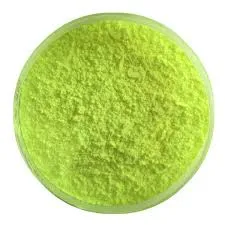Understanding the Role of APIs in Pharmacy
In the pharmaceutical industry, the term API stands for Active Pharmaceutical Ingredient. These are the substances within a pharmaceutical drug that are biologically active and responsible for the drug's intended therapeutic effects. Understanding APIs is crucial for anyone involved in the pharmaceutical field, from researchers and developers to healthcare providers and patients.
What is an API?
Active Pharmaceutical Ingredients are the key components of medications that deliver the intended health benefits. For instance, in a pain relief tablet, the API is the molecule that provides the analgesic effects, while other substances in the formulation, such as binders or fillers, serve supportive roles. APIs can be derived from various sources, including natural products (like plant extracts), chemical synthesis, or biotechnological processes (such as recombinant DNA technology).
Importance of APIs in Drug Development
The development of APIs is a complex and crucial part of the drug development process. It involves rigorous research and development (R&D) to identify potential compounds that have therapeutic effects. The process can take many years, involving preclinical studies, clinical trials, and regulatory approvals. Once a candidate API is identified, it must undergo extensive testing to ensure its safety, efficacy, and quality.
Regulatory agencies such as the U.S. Food and Drug Administration (FDA) and the European Medicines Agency (EMA) impose strict guidelines on the production and validation of APIs. These regulations ensure that the APIs are consistent in quality and potency, which is vital for patient safety and treatment efficacy.
APIs and Quality Control
Quality control of APIs is crucial in the pharmaceutical industry. Poor-quality APIs can lead to ineffective medications and can even pose serious health risks. Manufacturers are required to implement Good Manufacturing Practices (GMP) during the API production process to maintain high standards. This includes stringent testing for purity, potency, and contamination, as well as maintaining proper documentation throughout the manufacturing process.
api meaning pharmacy

Additionally, the development of generic drugs heavily relies on the availability of high-quality APIs. When a pharmaceutical company’s patent on a branded drug expires, other manufacturers can produce generic versions by using the same or similar APIs. This not only increases market competition but also makes medications more affordable for patients.
Research and Innovation in APIs
Recent advancements in pharmaceutical science have led to innovative API development processes. For example, the use of nanotechnology and biotechnology has opened new avenues for creating APIs that can target diseases more effectively and deliver drugs more efficiently. Personalized medicine is another exciting area where APIs play a pivotal role, leading to the creation of tailored therapeutic agents that cater to individual patient needs based on genetic information.
Moreover, the COVID-19 pandemic highlighted the importance of rapid API development in responding to medical emergencies. The swift creation of mRNA vaccines showcased the ability to adapt existing API technologies for urgent public health needs, demonstrating the potential for timely innovation in pharmaceutical research and production.
Future Directions and Challenges
The future of APIs in pharmacy is promising, but it also comes with challenges. The global supply chain of APIs can be vulnerable to disruptions, as seen during the COVID-19 pandemic when many manufacturers faced shortages. Increasing the domestic production of APIs in various countries is a step being considered to mitigate such risks.
Additionally, the environmental impact of API production is an area that requires attention. Pharmaceutical companies are exploring greener methods of synthesis to reduce waste and minimize their carbon footprint. This not only helps in complying with environmental regulations but also enhances corporate social responsibility.
Conclusion
Active Pharmaceutical Ingredients are the cornerstone of the pharmaceutical industry, influencing the development, effectiveness, and safety of medications. From rigorous manufacturing practices to cutting-edge research and innovation, APIs represent a vital component of modern medicine. Understanding the significance of APIs not only enriches our knowledge of pharmaceuticals but also emphasizes the importance of maintaining high standards to ensure patient safety and effective treatment outcomes in healthcare. As the industry evolves, the role of APIs will continue to be central, driving forward the future of pharmaceutical science and patient care.

